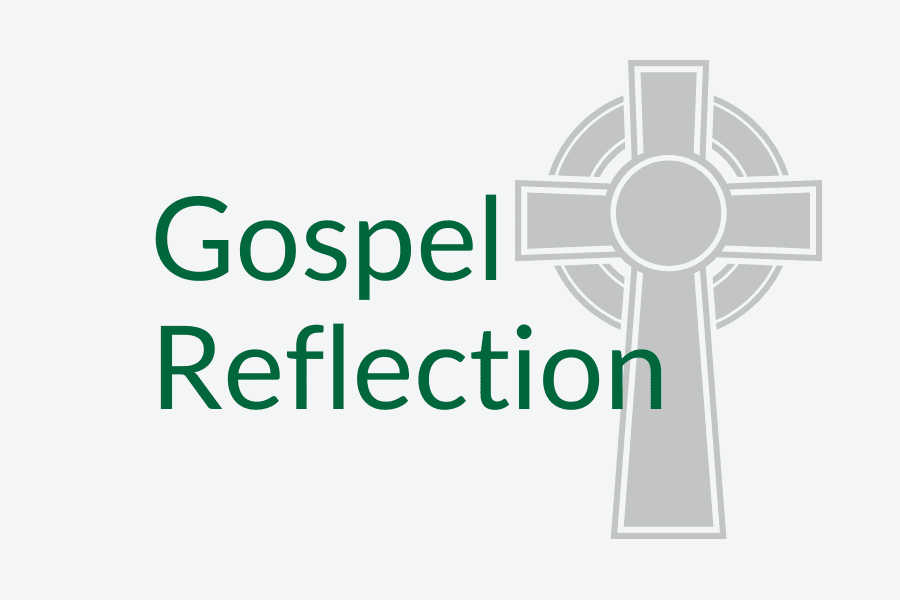Gospel Reflection July 28 – Deacon Paul Zemanek
Sunday, July 28
Seventeenth Sunday in Ordinary Time
John 6: 1-15
Gospel:
Jesus went across the Sea of Galilee.
A large crowd followed him,
because they saw the signs he was performing on the sick.
Jesus went up on the mountain,
and there he sat down with his disciples.
The Jewish feast of Passover was near.
When Jesus raised his eyes
and saw that a large crowd was coming to him,
he said to Philip,
“Where can we buy enough food for them to eat?”
He said this to test him,
because he himself knew what he was going to do.
Philip answered him,
“Two hundred days’ wages worth of food would not be enough
for each of them to have a little.”
One of his disciples,
Andrew, the brother of Simon Peter, said to him,
“There is a boy here who has five barley loaves and two fish;
but what good are these for so many?”
Jesus said, “Have the people recline.”
Now there was a great deal of grass in that place.
So the men reclined, about five thousand in number.
Then Jesus took the loaves, gave thanks,
and distributed them to those who were reclining,
and also as much of the fish as they wanted.
When they had had their fill, he said to his disciples,
“Gather the fragments left over,
so that nothing will be wasted.”
So they collected them,
and filled twelve wicker baskets with fragments
from the five barley loaves
that had been more than they could eat.
When the people saw the sign he had done, they said,
“This is truly the Prophet, the one who is to come into the world.”
Since Jesus knew that they were going to come and carry him off
to make him king,
he withdrew again to the mountain alone.
Gospel Reflection:
In our Gospel today, we heard the very familiar story about the feeding of the five thousand. It is the only miracle story mentioned in all four Gospels, which means it is a very special event with a meaning that goes much deeper than the extraordinary feeding of thousands of people. For in this miracle, Jesus takes the boy’s five barley loaves and two small fish to feed the multitudes.
The Gospel writer, John, linked this miracle with the mission of Jesus and the Eucharist. He even used the same verbs that we later find in the institution of the Eucharist…where Jesus “took” the bread, he “blessed” it, “broke” it, and “distributed” the bread…the same actions the Priest does in the Eucharistic celebration. And, just like Jesus took the little that was available, God also expects us to come to the aid of others, and to share what little we have. Saint Teresa of Calcutta once said about Jesus that “He uses us to be his love and compassion in the world in spite of our weaknesses and frailties.”
Pope Benedict stated in one of his Angelus messages about this Gospel that “The miracle was not worked from nothing, but from a first modest sharing of what a simple lad had brought with him. Jesus does not ask us for what we do not have. Rather, he makes us see that if each person offers the little he has, the miracle can always be repeated: For God is capable of multiplying our small acts of love and making us share in his gift.
Friends, let us today bring our small acts of love for others and help ensure this miracle continues to be repeated in our world.
Deacon Paul Zemanek

